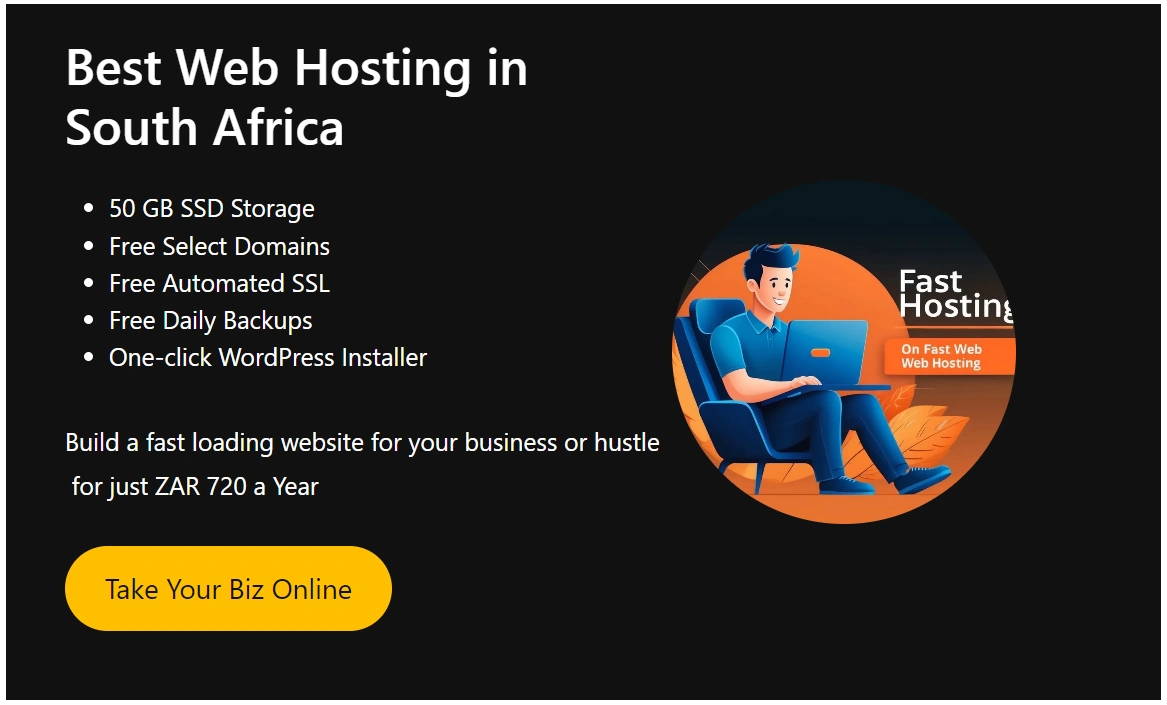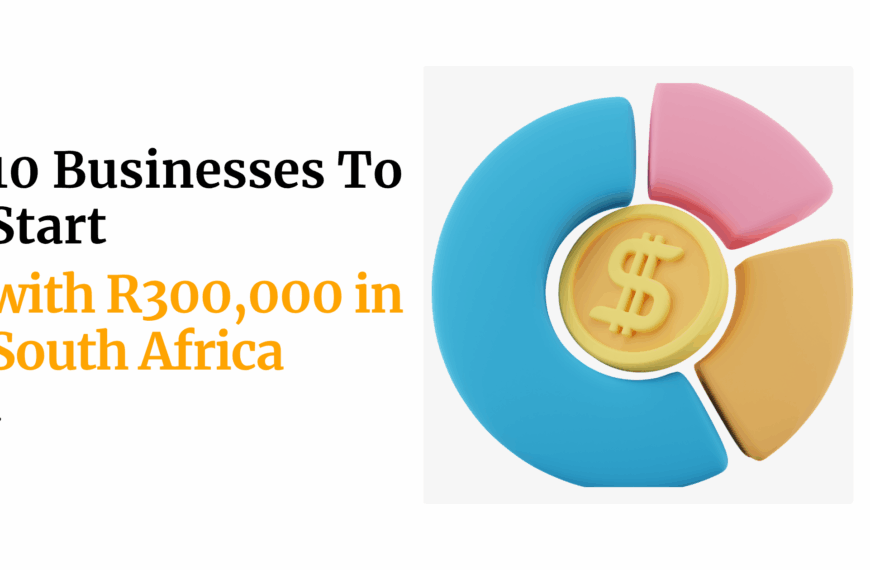Last updated on February 10th, 2025 at 08:52 am
Starting a business in South Africa is an exciting journey, but one of the first decisions you’ll face is choosing the right business structure.
The two most common options are:
- Sole proprietorship – A simple, low-cost way to start a business, but with personal risk.
- Private company (Pty Ltd) – A separate legal entity that protects your personal assets but requires more admin.
Each structure has advantages and disadvantages, depending on your business goals, risk tolerance, and long-term plans.
This guide breaks down everything you need to know about these two structures. We’ll cover liability, taxation, compliance, and growth potential to help you make an informed decision.
Table of Contents
Key Differences at a Glance
Here’s a quick comparison to help you understand the main differences:
| Feature | Sole Proprietorship | Private Company (Pty Ltd) |
| Legal Status | Not a separate legal entity | Separate legal entity |
| Liability | Unlimited personal liability | Limited liability for shareholders |
| Taxation | Personal income tax rates (18% – 45%) | Corporate tax rate (27%) + 20% dividend tax |
| Setup | Quick, low-cost, no CIPC registration required | Requires CIPC registration, higher setup costs |
| Compliance | Minimal (no audits or annual returns) | Annual returns, financial statements, possible audits |
| Raising Capital | Limited to personal funds and credit | Can issue shares, easier to secure business loans |
| Business Continuity | Ends with the owner’s death or decision | Perpetual succession regardless of ownership changes |
| VAT | Required if turnover exceeds R1 million | Same as sole proprietorship, input VAT benefits for B2B |
| Business Bank Account | Recommended but not required | Required |
1) Liability Protection: Protecting Your Personal Assets
Sole Proprietorship:
When you run a sole proprietorship, you and your business are legally the same entity.
This means if your business faces debts or lawsuits, your personal assets (like your house, car, or savings) could be at risk.
Example: If your bakery gets sued, creditors can go after your personal belongings to settle the debt.
Private Company:
- Recognized as a separate legal entity from its shareholders.
- Limited liability: Shareholders are only liable up to the amount they have invested in the company. Personal assets are protected unless fraudulent activities occur.
- Example: A tech startup’s debt won’t affect the founder’s personal property.
2) Business Bank Accounts
Sole Proprietorship:
As a sole proprietor, you are not legally required to have a separate business bank account.
However, opening one can help you:
- Keep business and personal finances separate – This makes it easier to track income and expenses.
- Appear more professional – Clients and suppliers trust businesses with dedicated accounts.
- Simplify tax filing – A business account makes it easier to prove your income and claim deductions.
Some South African banks allow sole proprietors to open a business account in their personal name with a trading name attached.
Example: If your business is called “Buhle’s Catering,” you can open an account as Buhle Ndlovu t/a Buhle’s Catering (t/a = trading as).
Private Company (Pty Ltd):
A (Pty) Ltd is legally required to have a separate business bank account. Banks will ask for:
- CIPC registration documents
- Company tax number from SARS
- ID documents of directors
- Proof of business address
Having a separate account helps with:
- Financial transparency – Business finances must be recorded separately.
- Legal protection – Mixing personal and company money can cause legal and tax issues.
- Investor confidence – Investors and lenders expect a dedicated business account.
💡 Key takeaway: A sole proprietorship can use a personal account, but a (Pty) Ltd must open a business account.
3) Taxation: Which Structure Saves You More Money?
Sole Proprietorship:
In a sole proprietorship, your business profits are taxed as personal income.
South Africa, just like many countries worldwide, uses a progressive tax system, meaning the more you earn, the higher your tax rate (from 18% to 45%).
However, you can benefit from tax rebates (discounts on your tax bill). For example, if you’re under 65, you get a primary rebate of R17,235 (2024 tax year).
This makes sole proprietorships ideal for low-income earners.
Example: If you earn R100,000 a year, your effective tax rate could be as low as 3% after rebates.
Private Company (Pty Ltd):
Private companies pay a flat corporate tax rate of 27% on profits. If you take money out of the company as dividends, you’ll also pay a 20% dividend tax.
This means the effective tax rate can go up to 42% if you withdraw all profits.
However, small businesses that qualify as Small Business Corporations (SBCs) enjoy lower tax rates (0%-28%), making this structure more tax-efficient for higher earners.
4) Administrative and Compliance Requirements
Sole Proprietorship:
One of the biggest advantages of a sole proprietorship is its simplicity. You don’t need to register with the Companies and Intellectual Property Commission (CIPC) or file annual financial statements.
However, it’s a good idea to open a separate business bank account to keep your finances organized.
Private Company (Pty Ltd):
Running a private company comes with more administrative work. You must:
- Register with the CIPC.
- File annual returns and financial statements.
- Maintain a separate business bank account.
- Comply with SARS requirements like IRP6 and ITR14 filings.
These tasks can cost around 3% of your annual turnover, so factor this into your decision.
5) Growth and Funding: Which Structure Helps You Scale?
Sole Proprietorship:
Sole proprietorships are great for small, low-risk ventures, but they’re harder to scale.
Banks and investors prefer structured entities like private companies, so securing funding can be challenging.
Private Company (Pty Ltd):
Private companies have a clear advantage when it comes to growth. You can:
- Attract investors by issuing shares.
- Secure loans more easily.
- Enjoy perpetual succession, meaning the business continues even if ownership changes.
6) VAT Considerations
Both sole proprietorships and private companies must register for VAT(Value Added Tax) if their annual turnover exceeds R1 million.
- Sole Proprietorship: Charging 15% VAT might deter non-VAT-registered customers.
- Private Company: You can claim input VAT on business expenses, which can be a significant advantage for B2B operations.
7) Succession and Continuity
- Sole Proprietorship:
- Business ceases upon the owner’s death or decision to close.
- Difficult to transfer ownership.
- Private Company (Pty Ltd):
- Perpetual succession: The company remains operational regardless of changes in shareholders or directors.
- Easier to transfer ownership through share transfers.
Which Structure is Right for You?
- Choose a Sole Proprietorship if:
- You’re starting a small, low-risk business.
- Your income is under R660,000 annually.
- You want simplicity with minimal compliance.
- Ideal for freelancers, consultants, and side hustles.
- Opt for a Private Company if:
- You seek limited liability to protect personal assets.
- Your business has growth potential or needs external investors.
- You expect income to exceed R660,000 for potential tax benefits.
- You require perpetual succession for business continuity.
Switching from Sole Proprietorship to Private Company
If you start as a sole proprietor and later want to grow, you can convert to a private company.
Here’s how:
- Register your company with the CIPC.
- Transfer your business assets and liabilities to the new entity.
- Notify SARS and update your tax registrations.
Keep in mind that this process involves legal and tax implications, so consult a professional.
Common Mistakes to Avoid
- Choosing the wrong structure: Don’t pick a sole proprietorship if you plan to scale quickly.
- Ignoring compliance: Private companies have strict reporting requirements.
- Underestimating costs: Factor in setup and maintenance costs before deciding.
Expert Tips for Making the Right Decision
- Consult a tax advisor: They can help you understand the tax implications of each structure.
- Evaluate your goals: Are you looking for a side hustle or a long-term business?
- Consider your industry: Some industries are riskier and may require the protection of a private company.
Sole Proprietor vs Private Company (FAQs)
Can I operate as a sole proprietor and a private company at the same time?
No, you can’t operate the same business under both structures simultaneously. However, you can run separate businesses under each structure.
What are the penalties for non-compliance in a private company?
Penalties can include fines, legal action, or even the deregistration of your company.
How do I register as a sole proprietor or private company in South Africa?
- For a sole proprietorship, you don’t need to register with the CIPC.
- For a private company, visit the CIPC website to start the registration process.
What are the tax benefits of a Small Business Corporation (SBC)?
SBCs enjoy lower tax rates (0%-28%) and other incentives, making them ideal for small businesses.
Additional Resources
Final Thoughts
Generally, you want to:
- Start as a sole proprietor if you are testing a business idea or want minimal compliance.
- Switch to a private company when your business grows, you need liability protection, or you seek funding and tax efficiency.
💡 Pro tip: Before making a final decision, speak to an accountant or business consultant. They can help you choose the best option for your goals.
Want to register a (Pty) Ltd? Check out the CIPC website for more details.
 Web Hosting
Web Hosting Windows HostingBuilt for Windows apps and websites – stability, speed and flexibility
Windows HostingBuilt for Windows apps and websites – stability, speed and flexibility Reseller HostingLaunch a hosting business without technical skills or expensive infrastructure
Reseller HostingLaunch a hosting business without technical skills or expensive infrastructure Affiliate ProgramRefer customers and earn commissions from sales across our platform
Affiliate ProgramRefer customers and earn commissions from sales across our platform Domain SearchFind and secure a domain name in seconds with our quick lookup tool
Domain SearchFind and secure a domain name in seconds with our quick lookup tool CO ZA Domains
CO ZA Domains All DomainsExplore domain names from over 324 TLDs globally – all in one place
All DomainsExplore domain names from over 324 TLDs globally – all in one place Free Whois Lookup Tool South Africa
Free Whois Lookup Tool South Africa VPS
VPS SSLs
SSLs









